How to apply PF withdrawal online without employer signature
Update on: 07-April-2023 03:58:41 PM | Published on: 07-April-2023 03:56:21 PM | 3 Minutes Read

Table of Contents
Step 1: Visit the portal https://unifiedportal-mem.epfindia.gov.in/memberinterface/
Step 2: Enter your Universal Account Number (UAN), password and fill the captcha to log in to your account.
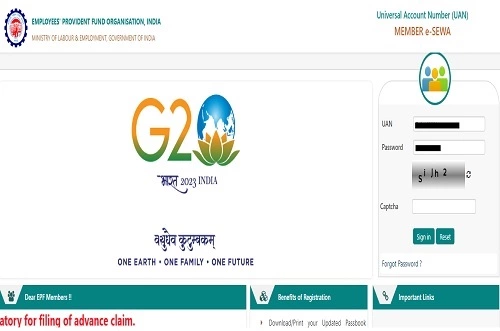
Step 3: To check if your KYC information, including your Aadhar, PAN, and bank details, has been verified, click the "Manage" button and select "KYC.".
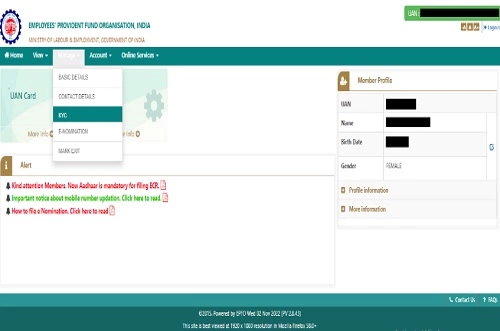
Step 4: After the KYC information has been verified, go to the "Online Services" tab and select "Claim (Form-31, 19 10C & 10D)" from the drop-down menu.
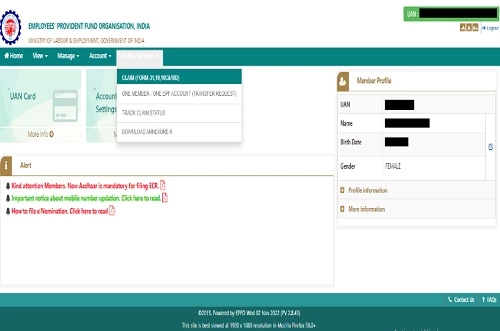
Step 5: The member information, KYC information, and other service information will be displayed on the next screen. Click "Verify" after entering the number for your bank account.
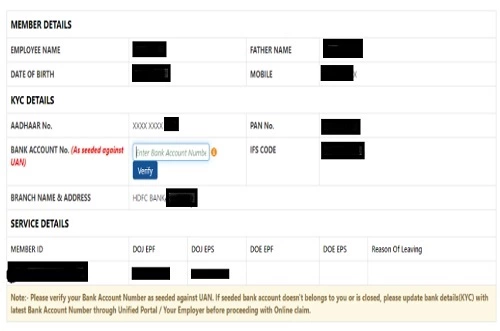
Step 6: Click on ‘Yes’ to sign the certificate of the undertaking and then proceed.

Step 7: Now, click on ‘Proceed for Online Claim’.
Step 8: Under the tab "I WantTo Apply For," on the claim form, Select the type of withdrawal claim you want to make (Form 19 for PF withdrawal, Form 10C for Pension withdrawal, or Form 31 for partial PF withdrawal).
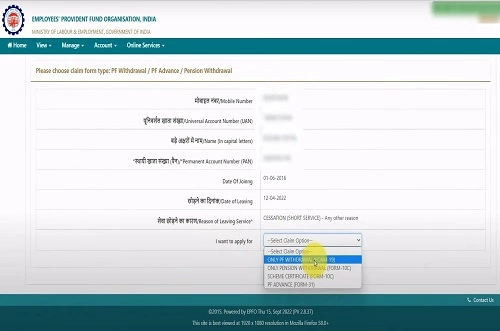
Step 9: Upload a scanned copy 15G form and cancel cheque send otp for verification, enter OTP and click the “Validate OTP and Submit Claim Form”.
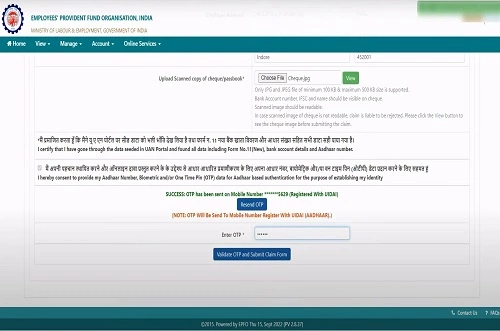
Step 10: Your claim application will be processed, and you will receive an SMS notification about the status of your claim. You can also check the status on the Online Service > Track Claim Status.
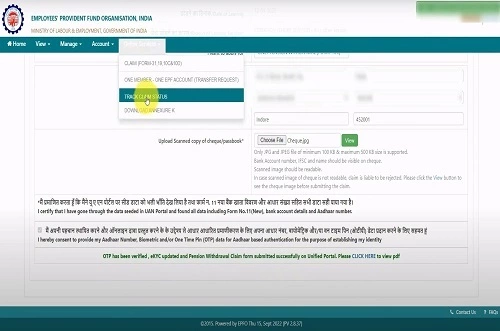
Step 11: Check your status on “current status”.
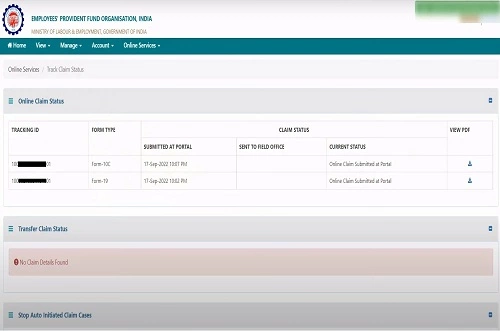
Step 12: It usually takes 15-20 days to get the money credited to the bank account. You can “View PDF” when the current status have settled.
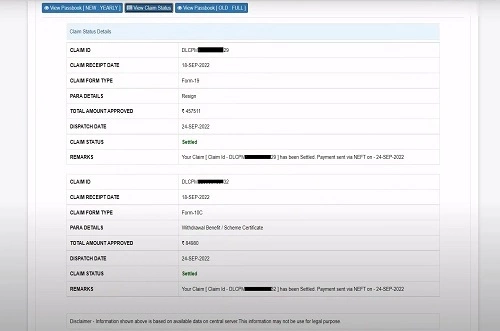
Related Articles
Which are the forms used for EPF withdrawal?
Success Stories & Reviews
Why Do Customers Love Us?

Registered by Govt. of India

Our website Security score A+

OnTime Service provides

5000+ Happy Customer, Healthy Business


Verified Customer Reviews
Trusted by
 |
 |
 |
 |
 |














